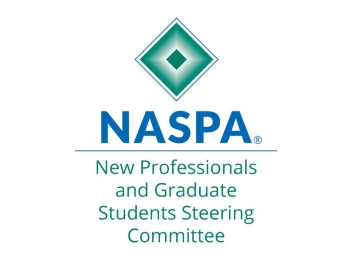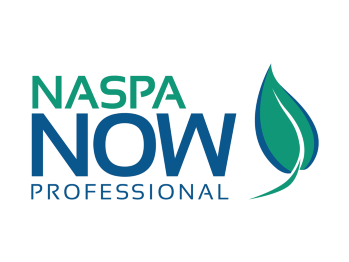
New Professionals and Graduate Students
Supporting the Profession New Professionals and Graduate Students New Professional
The New Professionals and Graduate Students (NPGS) Steering Committee is your gateway into this 15,000+ member association! Our steering committee strives to provide support from graduate students (master's and doctoral) and new professionals (< 5 years of full-time experience). Explore ways to engage with us year-round.
Click "Join Community" below to receive communications from us and explore ways to engage with us year round! (Scroll down to view instructions on how to sign up for our newsletters and communications.)
Message from the Leadership Team
Welcome to the NPGS community! The New Professional and Graduate Student Steering Committee (NPGS SC) is home to all graduate students and emerging professionals in the NASPA community. We represent master's students, doctoral students, and those with less than five years of full-time experience in higher education. Our goal is to empower graduate students and new professionals to grow in confidence, build meaningful connections, share their voices and needs, and engage in diverse opportunities that foster leadership, learning, and community.
Most importantly, this community is about you. We want to hear from you, so please get involved and reach out to us! We can't wait to connect, learn from your experiences, and discover how we can best serve you.
About
We are excited to help you learn more about who we are, our focal areas and future plans.
Mission
The mission of the New Professionals and Graduate Students (NPGS) Steering Committee (SC) is to educate and disseminate information related to graduate students and new professionals in higher education and student affairs.
Additionally, the NPGS SC is committed to creating scholastic opportunities, developing community among members, and enhancing professional involvement within NASPA, student affairs, and higher education.
2025-2027 Chair Platform
For the 2025-2027 NASPA cycle, the NPGS SC will provide support and resources to you, our constituents, as you “Build Your Home in Student Affairs.” Our efforts are centered on four pillars (or building blocks, if you will): assessment, belonging, confidence, and development. Life as an emerging professional can be riddled with doubt, uncertainty, and apprehension - we’ve both lived it and witnessed it! But we firmly believe that it doesn’t have to be that way. By focusing on our pillars, we hope to help all new professionals and graduate students feel heard, valued, confident, and prepared throughout their student affairs journey.
Guiding Pillars
-
Education & Knowledge Sharing
-
Disseminate research, resources, and practices relevant to early career professionals and graduate students.
-
-
Community & Belonging
-
Foster meaningful connections among members across institutions and functional areas.
-
-
Engagement & Leadership
-
Promote active involvement in NASPA, professional associations, and higher education leadership opportunities.
-
-
Innovation & Advocacy
-
Encourage new professionals and graduate students to design creative solutions, engage in advocacy, and elevate marginalized voices.
-
Get Involved
Interested in learning more about how NPGS serves emerging professionals?
Follow us on Instagram (@npgs_sc), Facebook, and X.
Join our monthly newsletter (instructions are below)
Come to our events
Join the leadership team by applying for open positions on Volunteer Central
Get the latest NPGS Updates
Just because you are a member of NASPA does not mean you are getting updates from the New Professionals and Graduate Students Steering Committee. You have to become a member of the Steering Committee to receive announcements, opportunities, and information related to our community. Follow the instructions below to join. Also, know that NASPA members are welcome to join as many SC/KCs as they’d like. The more you join, the more you may get out of your membership.
To join, follow these steps.
- Step 1: Visit the NASPA website at www.naspa.org and log-in
- Step 2: Click on “Update Profile"
- Step 3: Click on “Edit Information”
- Step 4: Scroll down to the Steering Committee/Knowledge Community section
- Step 5: Highlight all SC/KCs you want to join including the "New Professionals and Graduate Students" and click “Save”
Another way to get involved is by Join the NPGS Leadership Team which you can apply for Volunteer Central.
Join the NPGS Leadership Team
To be considered for a Leadership Team and/or Regional Representative position, you must be a NASPA New Professionals and Graduate Students SC member and be willing to devote time towards the betterment of the SC.
These positions are developed and selected by newly-elected SC Chair(s). Sometimes position offerings change from term to term. Currently all positions are filled for the 2024-2026 term. As opportunities arise, we will post them via NASPA Volunteer Central, including committee roles and one-time experiences, such as sponsored session program reviewers.
Apply For Steering Committee Chair/Co-Chair
The Steering Committee Chair position provides leadership for the community. These positons are available on a two-year rotating basis. We encourage all involved NASPA members to consider applying for this amazing opportunity available for you to get actively involved with the NPGS SC.
The chair(s) serve the SC by: (1) developing, recruiting and selecting a Leadership Team, (2) developing a platform and strategic plan for the SC, and (3) engaging in communication between SC members, leadership, and NASPA Headquarters.
Steering Committee Chair/Co-Chair candidates should:
- Be committed to developing and implementing the SC vision, mission, and goals.
- Be able to make a 3-year commitment to SC leadership (1 year as Chair/Co-Chair Elect and 2 years as Chair/Co-Chair.
- Be able to attend NASPA Annual Conferences and SC leadership events and conference calls.
- Possess strong organizational and communication skills.
In order to run for the chair position, be on the lookout for the Nomination Process held in even number years (2020, 2022, 2024, etc.). Nominations are by members of the SC or we encourage self-nominations as well.
Complete Your Profile
Login and update your profile.
Awards
Leadership Team
Get Connected
Stay connected with us. We offer year-round opportunities for networking and professional development.
Regional & Area Social Media
Take a look at the active social media channels for the New Professionals & Graduate Students Steering Committee that offer reigonal or area level content. Don't know your region/area? Find out where you fit in NASPA.
| Region/Area | Additional | ||
|---|---|---|---|
| Region I | NPGS Region I | NPGS Region I | |
| Region II | NPGS Region II | -- | |
| Regional III | NPGS Region III | -- | |
| Region IV - E | NPGS Region IV - E | -- | |
| Region IV - W | NPGS Region IV - W | -- | |
| Region V | NPGS Region V | -- | |
| Region VI | NPGS Region VI | -- | |
| MENASA | -- | -- | |
| LAC | -- | -- |
Steering Committee Social Media
Take a look at the NASPA-wide social media channels for the Steering Committee below.
Signature Initiatives
Each year, the NASPA New Professionals and Graduate Students Steering Committee present a number of events that are geared to stimulate intellectual and personal engagement on a variety of topics relevant to our members.
These signature events and initiatives address some of the most pressing issues of our time, and they are designed to have a powerful impact on all participants and attendees. To learn more about our scheduled programs and events, please visit the Events listing page.
NPGS Symposium/Pre-Conference
 The NASPA Graduate and New Professionals Symposium is an opportunity for participants to learn, share, network, and develop both personally and professionally. The symposium is hosted at the Annual Conference during a full-day Pre-Conference Session. The agenda and focus for the symposium changes annually to address the needs of our members.
The NASPA Graduate and New Professionals Symposium is an opportunity for participants to learn, share, network, and develop both personally and professionally. The symposium is hosted at the Annual Conference during a full-day Pre-Conference Session. The agenda and focus for the symposium changes annually to address the needs of our members.
You can register for the symposium when you sign up for your Annual Conference registration.
Conference Consortium
The Consortium was founded in 2012 by Stephen Deaderick out of a desire to engage new professionals and graduate students in conversations about the present state and future of the student affairs profession. Participants meet four times during the NASPA Annual Conference to dialogue about topics chosen by the Conference Coordinator Chair, in consultation with the NPGS SC Leadership Team. The topic is also connected to an area of the ACPA/NASPA Areas of Professional Competencies for Student Affairs Educators.
NASPA NOW Recognition Program
NASPA NOW recognizes graduate and new professionals who are making positive contributions to the profession and to NASPA along five values: Innovation, Inquiry, Inclusion, Impact, and Integrity. NASPA NOW is a partnership through NPGS and NASPA and will be first awarded at the 2018 National Conference in Philadelphia. All current New Professionals (less than 5 years full time experience) and Graduate Students (Master's and Doctoral) are encouraged to apply during the annual call for nominations.
Sponsored Program Sessions
With thousands of program submissions to the NASPA Annual Conference each year it can be difficult to select which programs to attend. Thus, the NPGS Leadership Team works to select three programs to sponsor or spotlight that are high-quality and meet critical needs for member’s professional development. Be sure to check your email as anual conference approaches for additional information.


